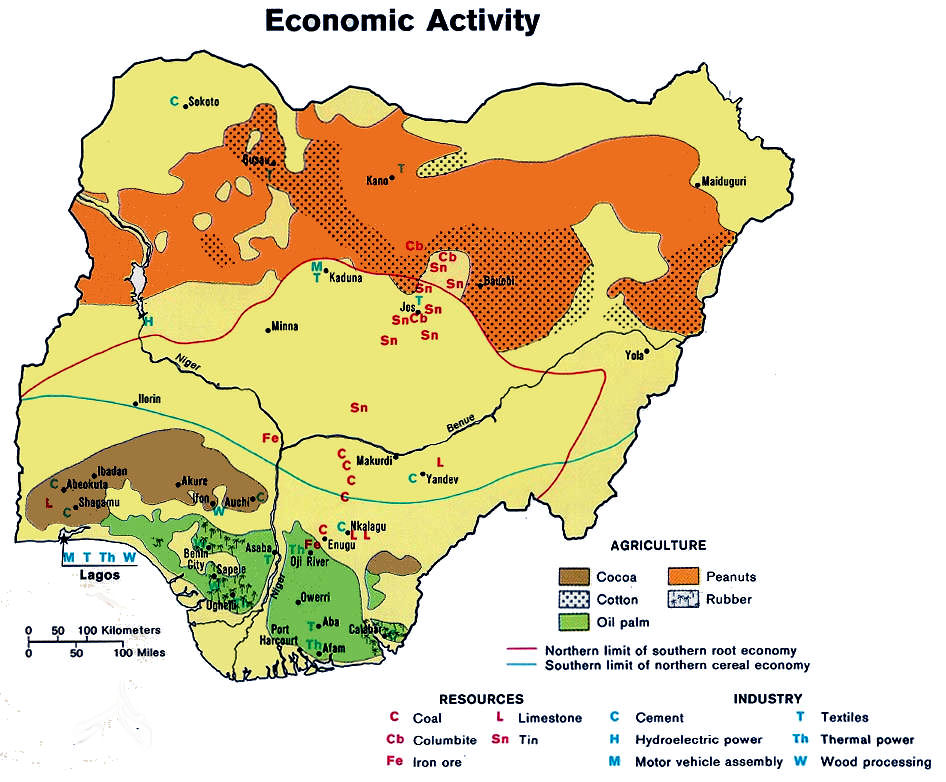 |
Gain Report: Nigeria sugar annual |
Report Highlights: Nigeria continues to depend almost exclusively on sugar imports despite the completion of the privatization of all government-owned sugar estates. Rehabilitation and expansion of these estates are on going, albeit at a very slow pace and at present, only Savannah Sugar Company (Dangote) has resumed milling operations. The GON's low duty on raw sugar is encouraging expansion and new investments in refining capacity. These refineries depend exclusively on imported brown sugar, largely from Brazil.
Executive Summary:
Until 2005 all the sugar estates in Nigeria were government-owned and poorly managed. In order to improve their operational efficiencies, the Nigerian government (GON) decided to privatize the estates. The privatization was gradual and it was completed in 2008. The rehabilitation of the estates by the new owners has been very slow due largely to the huge capital outlay required. Of all the privatized estates, only Savannah Sugar Company, now owned by Dangote Industries, has resumed milling operations. Josepdam, the new owners of the Nigeria Sugar Company is expected to commence milling operations in 2011/2012. Rehabilitation of the other privatized estates are at various stages of completion. Savannah Sugar Company under is new management (Dangote) modestly increased local production and processing of sugar cane in MY2010/11.
The bulk of Nigeria’s sugar requirement is satisfied through imports of raw sugar from Brazil that is refined locally. At present, there are only two major companies refining sugar in Nigeria: Dangote Sugar remains the dominant player with a refinery capacity of 1.44 million tons followed by BUA Sugar Refinery with a capacity of 720,000 tons per year. The combined capacity of the two refineries is 2.3 million tons of sugar per year, far exceeding national consumption estimated at 1.4 million tons. Despite the overcapacity, it is reported that two other investors plan to establish sugar refineries.
Because of Nigeria’s beneficial tariffs on raw sugar, about 90 percent of all imports come as raw sugar and refined locally, while the remainder is imported in refined form.
Exchange Rate: $1 = 150 Naira
Commodities:
Sugar, Centrifugal
Production:
Nigeria’s domestic sugar production in MY2011/12 is forecast at 65,000 tons (raw value), up from the revised estimate of 60,000 tons in MY2010/11. Following the completion of the privatization of all government-owned estates, rehabilitation and expansion are on-going on the estates, albeit at a slow pace. Dangote-owned Savannah Sugar has completed the first phase of its rehabilitation program, with about 6,700 hectares of newly planted cane fields. Josepdam, the new owners of Nigeria Sugar Company, has embarked on an aggressive nursery establishment to produce enough cane seeds for field expansion. However, available raw material is not adequate for the company to commence milling operations. The company is expected to begin milling operations during the MY2011/12 season. Other state-owned sugar estates in Sunti and Lafiaji have also been privatized and have varying stages of rehabilitation. Privatization has undoubtedly improved management of these estates. However, new investments are hampered by the huge funds required to establish a sugar estate and the lack of long tenor investable funds.
Savannah Sugar reported a decrease in sugar cane yield from 75 tons per hectare in 2009 to 66 tons last year. The estates in collaboration with the National Sugar Development Council (NSDC), which is the GON’s sugar sector development agency, have imported new cane varieties that are currently being evaluated. The average yield of refined sugar from a ton of cane is estimated at approximately 9 percent.
With the privatization exercise now completed, the NSDC has shifted focus to monitoring, research and development, promotion of mini plants, supporting uniform development of the out-grower program, and establishing a price support mechanism to ensure that farmers receive a fair deal from the estates. The NSDC is assisting farmers in the acquisition of fertilizers, pesticides and improved seed cane in collaboration with the Central Bank of Nigeria (CBN) and a local commercial bank. They have introduced a new scheme that will deliver inputs and credits to out-grower cooperatives at a low interest rate of seven percent. In addition, the estates are collaborating with the NSDC to develop a robust out-grower scheme with the local communities. Under this scheme, the estates will prepare the land; provide irrigation, seed cane, and other inputs to local farmers to produce cane that will be purchased and milled by the estate at an agreed upon price.
The NSDC has developed a new road-map for the development of the sector, tagged the Nigeria Sugar Master Plan, which is focused on private sector-led development of the sugar industry. Additionally, the NDSC is collaborating with other government agencies, such as the GON’s River basin Development Authorities and the State Agricultural Development Projects, in organizing and supporting sugarcane farmers to expand and improve output…..
Prepared By: Marcela Rondon, Regional AgAttache and Michael David
Approved By: Russ Nicely, Regional Agricultural Counselor
Enjoy this article? Feel free to share your comment, idea or opinion in the comment section
Related Articles

|
Issues in Supply Chain ManagementCompanies can enhance their SCM performance by focusing on the issues that influence SCM performance. It is found that SCM encompasses planning, manufacturing, and operations management necessary to bring a product to the marketplace, from the sourcing of materials to the delivery of the completed p [Read more]
|
Posted: 4 years ago |

|
How to Reinvent Yourself To Be The Best You Can BeChange, they say, is the one thing that is constant. Change is the only thing that keeps happening, and it happens by the millisecond. However, since there are certain things we can’t stop from changing, like our age and bodies, there are things we wish we could change, but don’t know ho [Read more]
|
Posted: 8 years ago |

|
Reality Check on Fiscal Policy in NigeriaAbstract: The fact that the 2014-2016 MTEF projects that an increase of N17 trillion in nominal GDP between 2012 and 2016 will be accompanied by a decline in nominal Federal Government revenue and spending suggests that Nigeria’s fiscal policy has disconnected from economic reality. Urgent ste [Read more]
|
Posted: 13 years ago |


